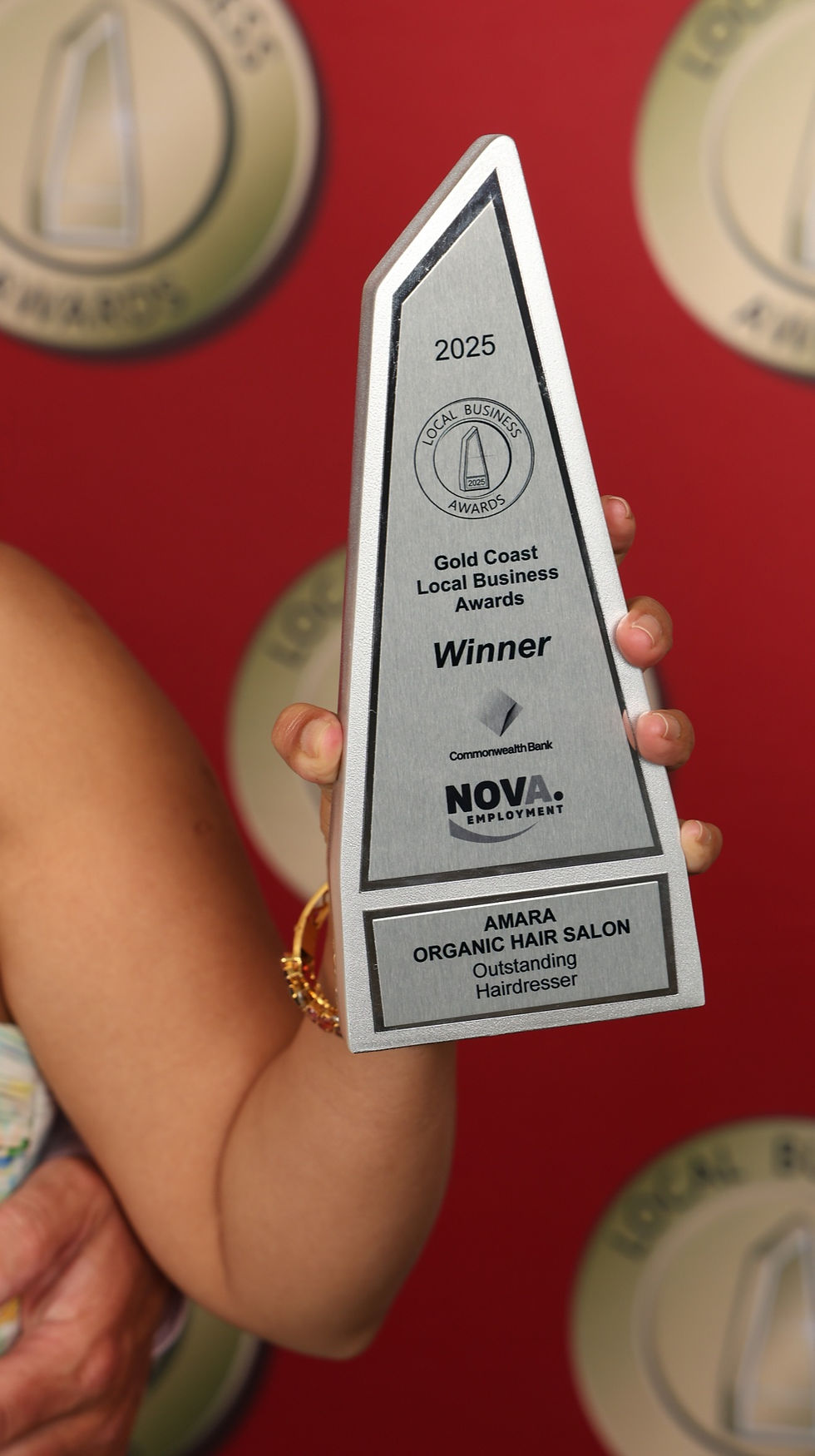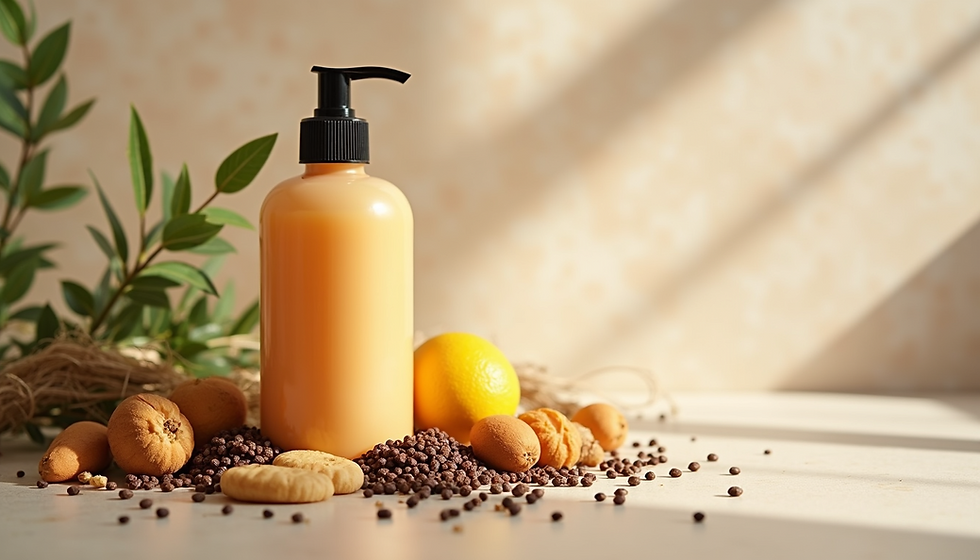Unlocking the Secrets to Healthy Hair Through Expert Self-Care Scalp Techniques
- Amara Organic Hair
- May 31
- 3 min read

Hair health often starts beneath the surface, focusing on the scalp rather than just the strands themselves. A healthy scalp is crucial for vibrant, full-bodied hair. Many people overlook this essential aspect of hair care, instead directing their attention solely to products for length and shine. In this blog post, we will explore expert self-care scalp techniques that can reveal the pathway to achieving healthy hair.
Understanding the Scalp
The scalp needs proper care and attention, just like your skin. It is home to approximately 100,000 hair follicles and oil glands, both essential for promoting hair growth and maintaining hair health. Neglecting your scalp can lead to dryness, irritation, and a less-than-ideal environment for growth.
Regularly checking your scalp is as important as monitoring your hair's condition. Look for signs of itchiness, flakiness, or excessive oiliness, which can indicate that your scalp requires some care. For example, if you notice flaking, consider that up to 50% of adults experience dandruff at some point in their lives; this may signal an underlying issue with your scalp health.
The Importance of Scalp Cleansing
Regular cleansing is fundamental in achieving a healthy scalp. Oil, dirt, and product buildup can clog hair follicles, risking hair growth and scalp health.
Using a gentle, sulfate-free shampoo is vital. These shampoos effectively cleanse while preserving natural oils. It's essential to massage the shampoo gently into your scalp with your fingertips, avoiding your nails to reduce irritation. Aim for cleansing your scalp at least twice a week, or more often if you deal with excess oil.
Exfoliation: Revitalizing the Scalp
While exfoliation is common in skin care routines, it's often overlooked in hair care. Exfoliating your scalp helps remove dead skin cells and product buildup, creating a healthier environment for hair growth.
You can use a scalp scrub or create your own with sugar or sea salt mixed into your shampoo. A gentle exfoliant can be massaged into your scalp in circular motions once a month or as needed. For better results, consider scheduling your exfoliation right before a wash day to unclog pores and allow your hair products to penetrate deeply.
Moisturizing Your Scalp
Similar to other parts of your body, the scalp can become dry and flaky. Proper hydration is crucial for overall health.
Incorporating a lightweight moisturizing scalp treatment can make a significant difference. Ingredients like aloe vera, jojoba oil, and tea tree oil are especially good for soothing and hydrating the scalp. After cleansing, apply the treatment directly to your scalp and let it absorb. Studies show that 68% of people with dry scalps noticed improvements after consistent moisturizing.
Scalp Massage: A Gateway to Relaxation and Health
Scalp massages provide not only relaxation but also promote blood circulation to hair follicles, which can encourage growth.
To perform a scalp massage, use your fingertips in circular motions across your scalp, applying gentle pressure. Enhancing this experience with essential oils like lavender or peppermint can add calming and uplifting effects. Incorporate scalp massages into your routine a few times a week for the best results—many individuals report improvement in hair density and texture.
Nourishing the Scalp with Essential Oils
Essential oils are renowned for their benefits, particularly for scalp health.
For instance, tea tree oil has antimicrobial properties that can help reduce dandruff, while rosemary oil is linked to stimulating hair growth. Always dilute essential oils with a carrier oil like coconut or almond oil before applying them to your scalp to avoid irritation. Regular application can significantly enhance scalp health, potentially boosting hair growth rates.
Diet and Hydration: The Unsung Heroes
While self-care techniques are vital, your diet and hydration also significantly impact scalp and hair health.
Eating foods rich in omega-3 fatty acids, vitamins A, C, and E, and protein promotes healthier scalps and hair. Examples include fatty fish like salmon, leafy greens such as spinach, and nutrient-dense nuts. Staying hydrated—aim for at least 8 glasses of water a day—supports scalp moisture retention and creates an optimal environment for hair growth.
Stress Management: The Link to Scalp Health
Stress can negatively impact scalp health. High stress levels can result in conditions like telogen effluvium, which causes hair shedding.
Engaging in stress-relief activities—such as yoga, meditation, or even enjoyable hobbies—can reduce tension and improve overall health, including scalp health. Finding balance is key to maintaining not only mental well-being but also healthy hair.
Final Thoughts
Achieving healthy hair requires commitment, and a well-maintained scalp is the cornerstone of this endeavor. By incorporating expert self-care techniques—such as proper cleansing, exfoliation, hydration, and nutrition—you can significantly improve the health of your scalp, which encourages vibrant hair growth.
With consistency and dedication to scalp care, you can unlock the secrets to beautifully healthy hair. Remember that self-care is a journey. Nurturing your scalp is just one step towards embracing a holistic approach to hair health.

.png)


Comments